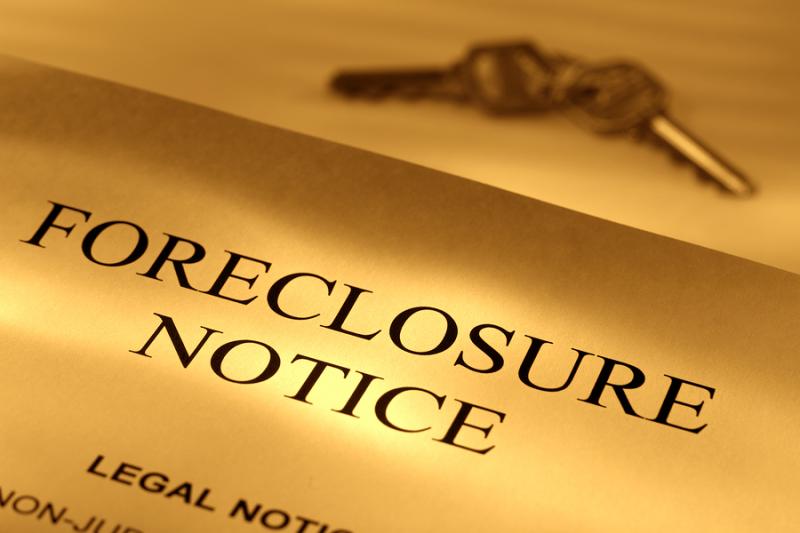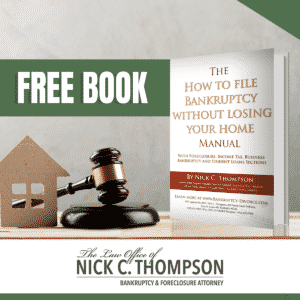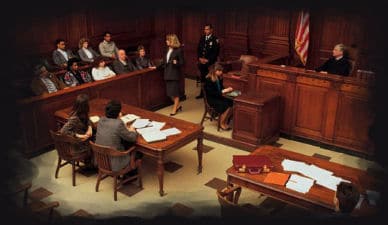Kentucky Commissioner Foreclosure Sales Costs, Fees, Refunds, Deposits, and Redemptions • Video
Kentucky Commissioner Foreclosure Sales Costs, Fees, Refunds, Deposits, and Redemptions • Video
When a county master commissioner holds a sale, he is allowed to collect his costs and charge attorney fees. This is only reasonable. Most Circuit Court Commissioners work overtime to make sure the homeowner is allowed every opportunity to save his home. But the homeowner has a responsibility to make sure he is not overcharged by the lenders. If you have a pending Kentucky Commissioner foreclosure sale make sure the lender does not overcharge you.
Kentucky Master Commissioner Foreclosure Sales Costs, Fees, Refunds, Deposits, and Redemptions
The Circuit Court Commissioner’s fees are set at 3% of the value of the home. Master commissioner sales in Kentucky follow specific procedures and regulations to ensure fairness and transparency. In Louisville, the Circuit court Commissioner earns 3% of the appraised value of the home. If the sale is withdrawn, he still collects a fee. But his fees for a withdrawn sale are normally limited to $2,500.00 plus his actual costs.
Actual costs and purchase price for a commissioner sale.
If a sale is withdrawn the commissioner will still collect his costs. The Commissioner’s costs will include:
- The basic cost of the appraisal is about $300 dollars.
- Advertising the sale costs about $400 dollars.
- Reimbursable expenses such as copying and postage about $12 for a sale that is withdrawn.
The costs and fees are subject to validation by the circuit court, ensuring that all charges are legally justified.
When a sale is held, the actual fees become much higher than when a sale is withdrawn. Additionally, the commissioner must prepare a deed and do a closing if the sale is completed.
Refunds to the homeowner.
When a house sells, it may sell for more than is owed. In such a case, there is a refund due to the homeowner. It is important to verify the status of court cases related to the property to ensure accurate information. When this happens, you must then apply for disbursement. Getting your share normally involves your attorney filing a motion to pay you the equity which is held in the commissioner’s account. This process may take months because creditors have to be paid first before the check is issued.
If you don’t file to be paid this money within about a year, it is then given to the court or the state as unclaimed monies. It then becomes more difficult to get paid after it leaves the Circuit Court Commissioner.
The plaintiff must pay a deposit to hold a sale.
To schedule a sale, the plaintiff must pay a deposit to the Circuit Court Commissioner to hold a sale which is about 2,500 dollars. The deposit is paid by the plaintiff and held in trust by the Circuit Court Commissioners to pay the fees and costs. However, the deposit never covers the commissioner’s minimum costs of holding the sale which runs at least about 3,200-3,300 dollars. If the sale is withdrawn because bankruptcy was filed or for any other reason, the plaintiff still owes the difference which at the minimum would be about 700 to 800 dollars.
The effect of the auction.
When the auction is held the equitable title passes to the winning bidder. Bidders should verify the true status of the property to avoid any legal complications. Once the auction happens the defendants in the foreclosure lose all rights to the property. Although the judge must still approve a sale, the rights of the homeowner are gone including the right to file a bankruptcy to cure the default. You cannot file bankruptcy to keep a home after the sale. You no longer own the property and now you only occupy it. But the new owner may not pay the funds and the sale may be withdrawn because the deed has not been paid for.
But if the deed has transferred the title to the new owner only the rights of redemption are left for the debtor to rely on. Filing a Chapter 13 bankruptcy before the sale would have allowed the debtor to catch up on the mortgage or pay off the property taxes. But, filing a Chapter 13 cannot undo the sale. Even filing a Chapter 7 would typically have delayed the sale 6 month or longer.
The right of redemption KRS 426.530.
The right of redemption is found in KRS Section 426.530. Essentially if the purchaser pays less than 66.66% (two-thirds) of the value of the home, the homeowner has six months to buy it back. At any particular moment, the right of redemption may be affected by various legal and financial factors. Under the old code, the homeowner had up to one year to redeem the home. If the purchaser pays over 66% there is no right to redeem the property.
The right of redemption covers not just a homeowner but, any property sold by a court order. You must allow the purchaser to make 10% interest and pay his reasonable costs. But until the six months passes you have a right to redeem the property. The purchaser can technically ask the judge for an order of eviction upon payment but normally the purchaser will not apply for eviction until after he gets the deed.
To purchase the property back, the defendant has to pay for any maintenance or repair of the property by the purchaser. This includes utilities, insurance, property taxes, homeowner association fees, and repairs to conform the property up to local codes. The purchaser does not get his money back for improvements the purchaser makes.
It is best to file a motion to redeem and pay the redemption money to the court clerk. Where the judgment was issued and where the sale occurred are almost always at the same county courthouse. But technically, you can pay it at either courthouse if the lawsuit was transferred from one county to another.
Upon payment of your redemption to the clerk, a new deed is issued by the Commissioner. This also gives you an immediate writ of possession showing you paid the redemption.
Role of the Master Commissioner
The Master Commissioner plays a crucial role in the foreclosure sale process. They are responsible for conducting the sale, ensuring that all bidders are aware of the terms and conditions of the sale, and verifying the identity of the highest bidder. The Master Commissioner also ensures that the sale is conducted in accordance with Kentucky law and the court’s orders. However, it is essential to note that the Master Commissioner’s role is limited, and they do not warrant the title or condition of the property.
Limitations of the Master Commissioner’s Role
Neither the Master Commissioner nor the office shall be liable to the recipient, or to any third party using the system or information obtained therefrom, for any damages whatsoever arising out of the use of this website. The Master Commissioner disclaims any warranties as to the validity of the information obtained from this website. The recipient is solely responsible for verifying information received from this site through the cross-referencing of official court record. The Master Commissioner’s office is not responsible for recording any deeds, and it is the buyer’s responsibility to record the deed once received from the office. Additionally, the Master Commissioner’s office does not provide surety bonds, and bidders must obtain their own surety bond if they do not intend to pay the full purchase price on the day of sale.
Overview of Foreclosure Sales in Kentucky
Foreclosure sales in Kentucky are a type of judicial sale conducted by the Master Commissioner’s office. These sales are typically the result of a court-ordered foreclosure, where a lender seeks to recover the outstanding balance on a mortgage loan. The Master Commissioner’s office is responsible for conducting the sale, which is usually held at the county courthouse or another designated location. The sale is open to the public, and bidders must register in advance to participate. Any foreclosure has to insure that all of the parties that have an interest are given notice including any estate, unknown spouse and unknown heirs.
The KY Sale Process
The sale process typically begins with the filing of a foreclosure lawsuit by the lender. Home owners usually lose by not answering lawsuits properly and losing by a summary judgment. Or the foreclosure is lost by default judgment when the home owner does not file an answer at all. There are about 120 different defenses to a lawsuit including the statute of limitations, lack of standing, lack of jurisdiction or venue, RESPA, and UDAP. It is very rare for foreclosures to go to trial.
If the defendant loses the court then appoints a Master Commissioner to conduct the sale. The Master Commissioner’s office will advertise the sale in local newspapers and on their website, providing details about the property, sale date, and terms of the sale. On the day of the sale, bidders will gather at the designated location, and the Master Commissioner will conduct the auction. The highest bidder will be awarded the property, subject to the commissioner submitting the sale for confirmation by the court. Once the sale is submitted and confirmed the commissioner will grant the deed. Even if there was an error in the bid, notice or procedure the property has been conveyed.
The ordinary limitations of foreclosure on your credit.
If you have had a property foreclosed it will take at least 3 years before you can purchase another home through FHA VA and other programs. Your ability to purchase a home or properties with conventional financing will take about 7 years. Foreclosure makes housing availability difficult. A Chapter 13 will take down the foreclosure sign in your yard after the county master commissioner puts up the foreclosure sign.
A Chapter 7 bankruptcy will keep you from financing a home with FHA and VA for 2 years. And you can finance a home while you are in a Chapter 13 and make payments on time within a year. In other words a foreclosure has a worse impact on your credit than a bankruptcy. Most people who file a Chapter 7 notice that their FICO score goes up not down.
Resources for Bankruptcy
Louisville Kentucky Bankruptcy Forms
Other Related Information and Official Court Record
- Kentucky Foreclosure Law Process • Video
- Property Tax Foreclosure Bankruptcy
- How to Get Money Back from a Commissioner Foreclosure Sale
- Kentucky Foreclosure Law Process
- Learn About Louisville Short Sales
If you are thinking about filing bankruptcy, don’t delay because timing is crucial. I am here to assist you. So, contact my office right away to start the conversation. Nick C. Thompson, Bankruptcy Lawyer: 502-625-0905.
It is important to note that the information provided on this website may not always reflect the true status of any court case at any given moment. Due to limitations and potential delays in the system’s operation, users should verify details through official court records.









